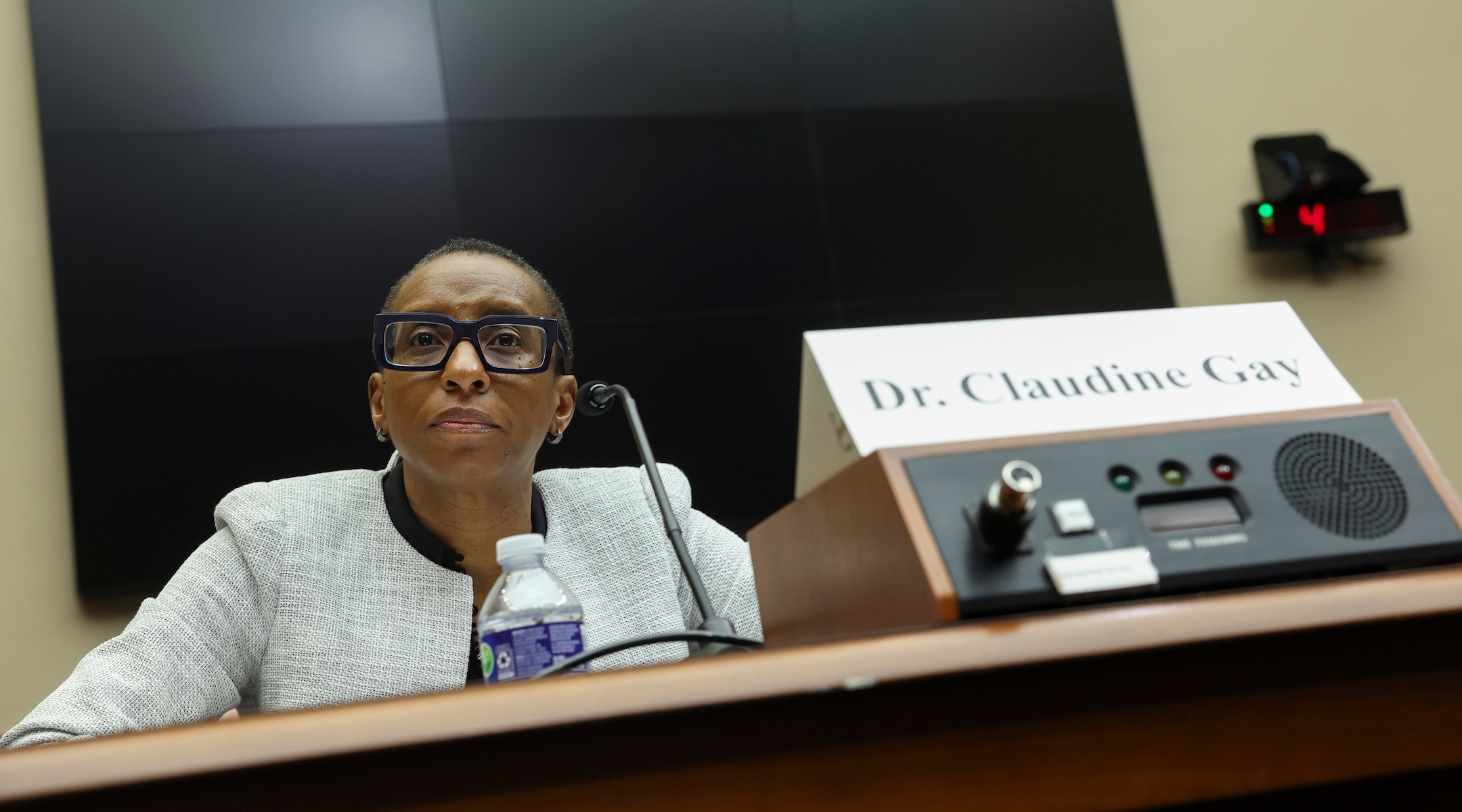(JTA) – Harvard University President Claudine Gay has resigned in the wake of plagiarism allegations and months-long criticism of her response to allegations of antisemitism at the school.
Gay is the second Ivy League university president to step down following congressional testimony on campus antisemitism last month that drew intense criticism. University of Pennsylvania President Liz Magill resigned her post on Dec. 9.
Gay had also faced criticism over the school’s initial statement on Hamas’ Oct. 7 invasion of Israel. Critics called the statement tepid, particularly in the wake of a letter from a coalition of student groups that blamed the attack on Israel. The Department of Education has also opened a civil rights investigation into one reported instance of a Jewish Harvard student being targeted on campus.
Soon after the congressional testimony, the university’s trustees, known as the Harvard Corporation, voiced its support for Gay’s continued leadership. On Dec. 13, the board issued a statement backing her and appearing to curb speculation that she would resign.
Instead Gay, the first Black president in the school’s history, will also become its shortest-tenured; she has served for just over six months. In addition to her handling of antisemitism, she was also under fire for allegations of plagiarism in her research papers. A new wave of plagiarism accusations surfaced this week.
Harvard Provost Alan Garber, who is Jewish, will serve as the school’s interim president, the Harvard Corporation announced. In November, Garber said that he had regrets about his school’s initial response to the Oct. 7 attack.
Gay’s resignation was first reported Tuesday by the Harvard Crimson, the student newspaper.
“It has become clear that it is in the best interests of Harvard for me to resign so that our community can navigate this moment of extraordinary challenge with a focus on the institution rather than any individual,” Gay wrote in a letter to the campus community. She referenced the allegations against her but did not apologize for them. She wrote that she had been “subjected to personal attacks and threats fueled by racial animus.”
Criticism of Gay mounted following the Dec. 5 congressional hearing, where she, Magill and Massachusetts Institute of Technology President Sally Kornbluth said that calls for the genocide of Jews may not necessarily violate their schools’ codes of conduct. At the hearing, Gay had testified that on-campus calls for “intifada” are “personally abhorrent to me,” but stopped short of saying they would violate the university’s rules. Instead, she, like the other presidents, said such matters were dependent on “context.”
“When speech crosses into conduct that violates our policies, including policies against bullying, harassment or intimidation, we take action and we have robust disciplinary processes that allow us to hold individuals accountable,” she said at the hearing.
That answer drew bipartisan rebuke, including from several lawmakers who are Harvard alums — such as New York Republican Rep. Elise Stefanik, who asked the question. Gay later apologized for her testimony.
Gay’s resignation was welcomed by a vocal contingent of Jewish Harvard students, alumni and donors who had pushed to hold the Ivy League university accountable for her testimony and for what they say is an unsafe campus environment for Jewish students. Bill Ackman, a Jewish alum and billionaire hedge-fund investor, had been among the more prominent voices calling for her to step down; other Jewish donors had pledged to reduce their giving to $1 in protest, or to only donate to Jewish groups on campus.
Calls to oust Gay were also backed by several right-wing figures, including Christopher Rufo, previously an architect of the Republican campaign against “critical race theory.”
Following Gay’s resignation, Ackman posted the message “Et tu Sally?” — an apparent reference to Kornbluth.
JTA has documented Jewish history in real-time for over a century. Keep our journalism strong by joining us in supporting independent, award-winning reporting.






